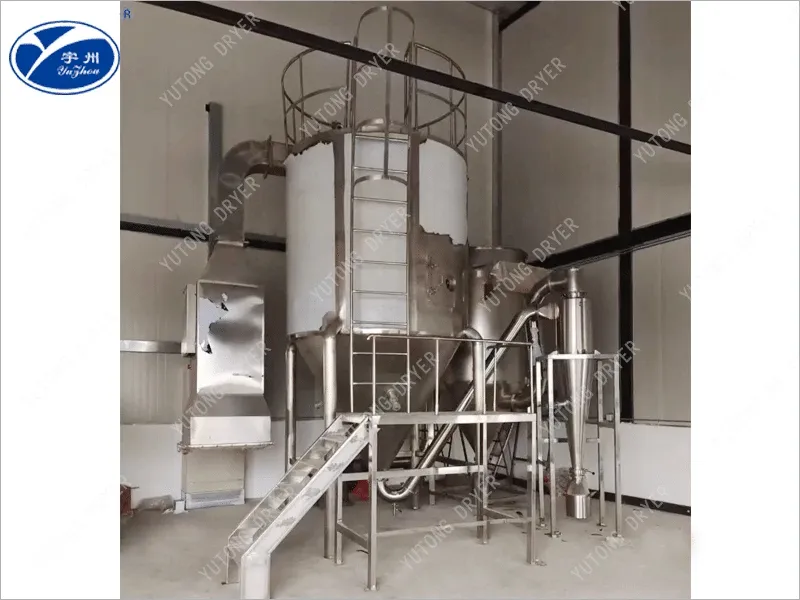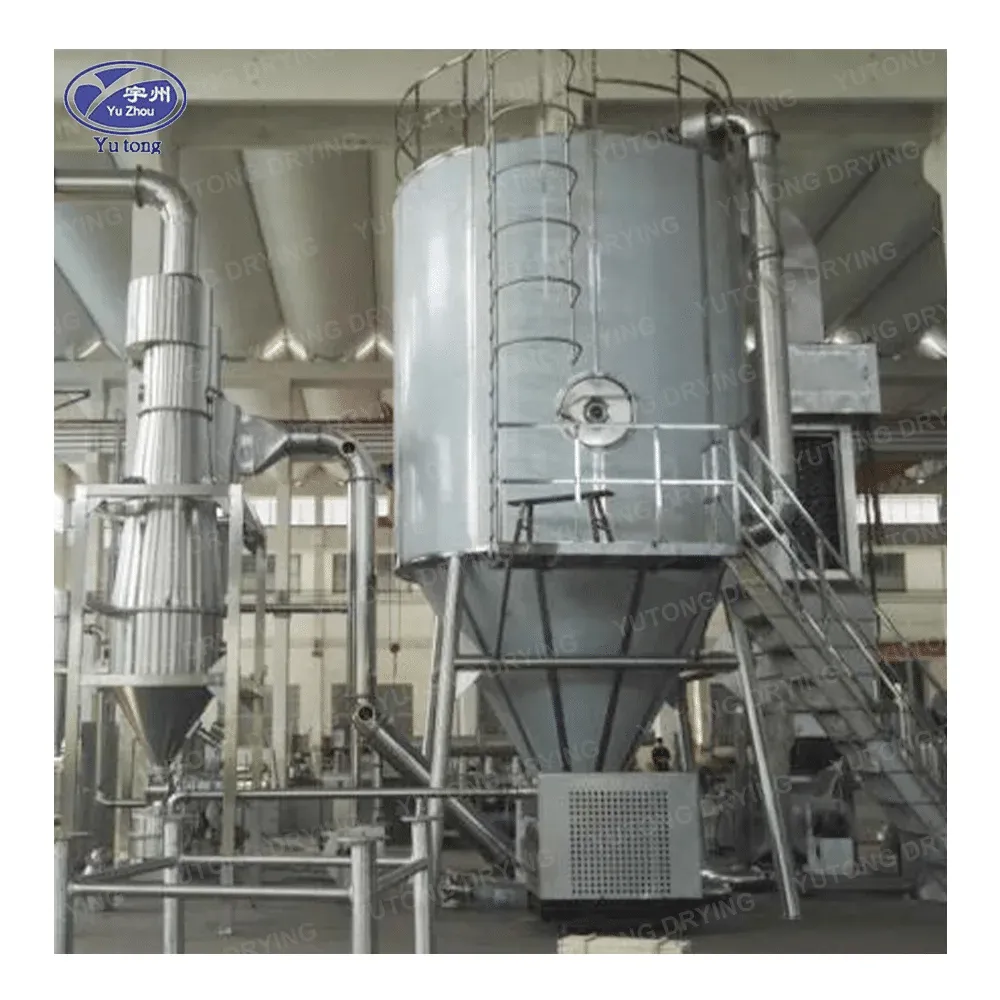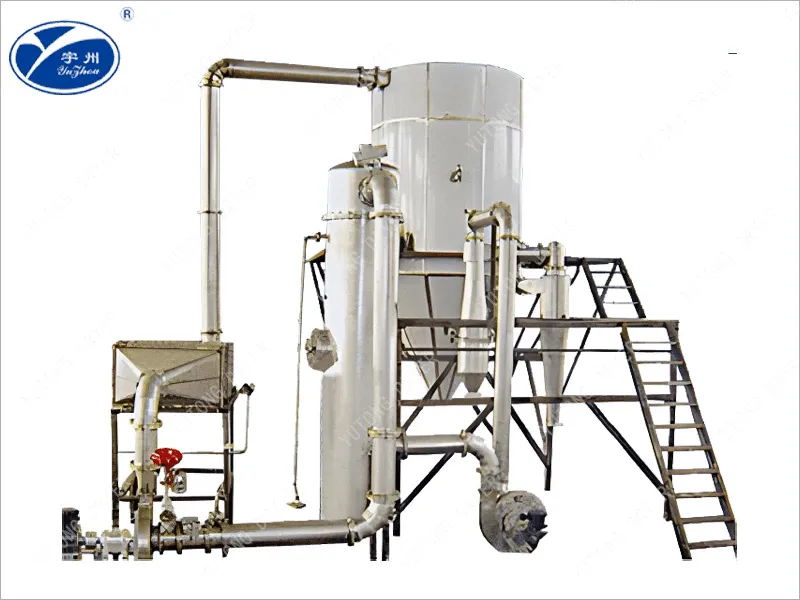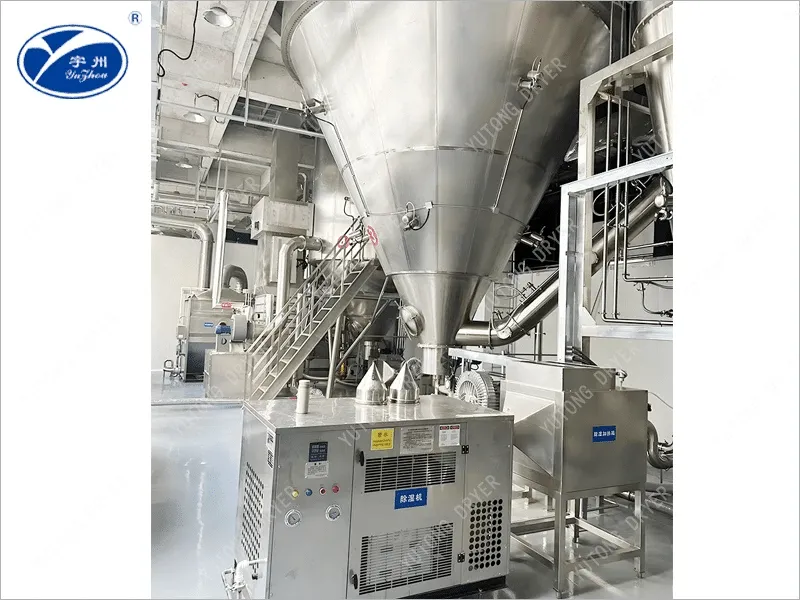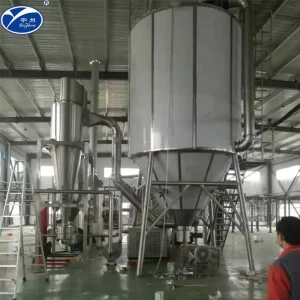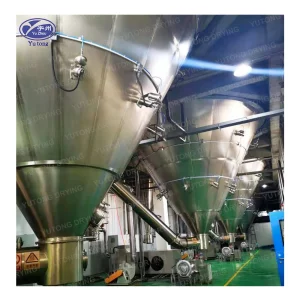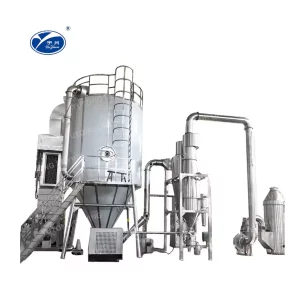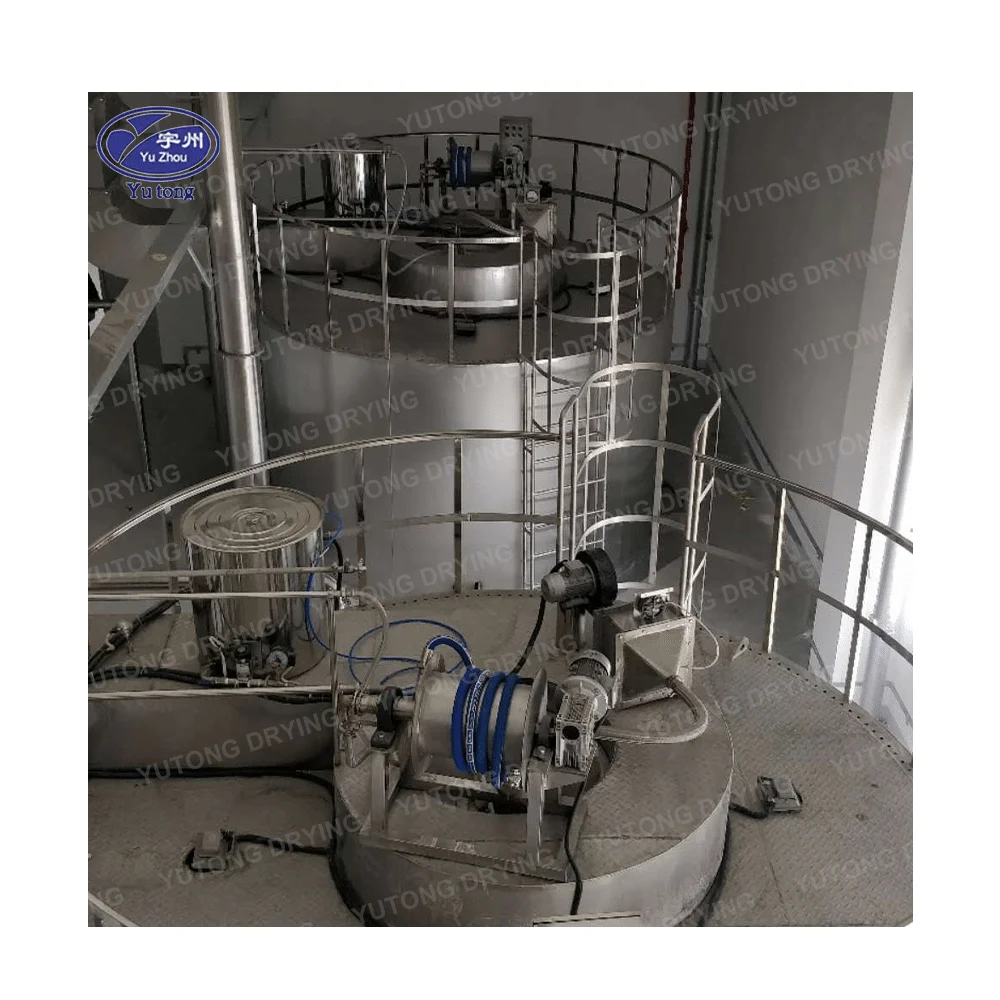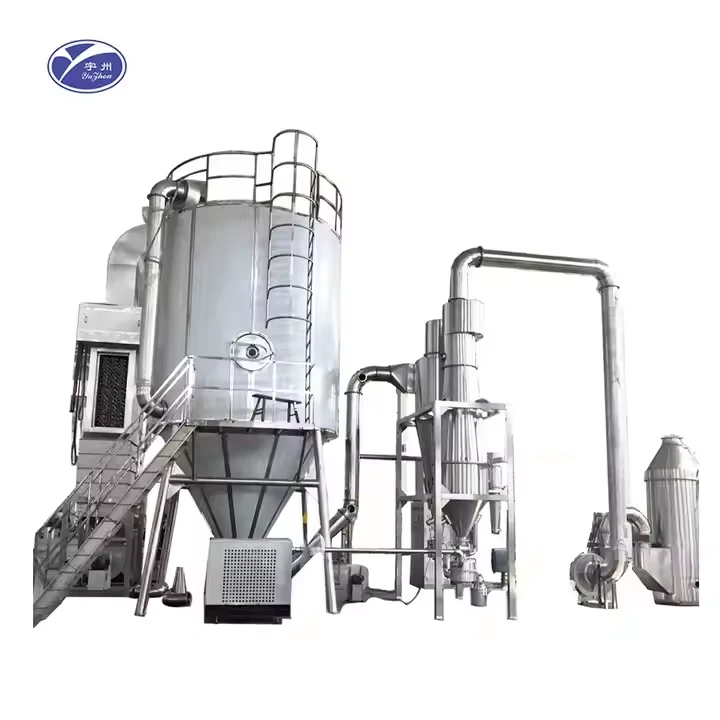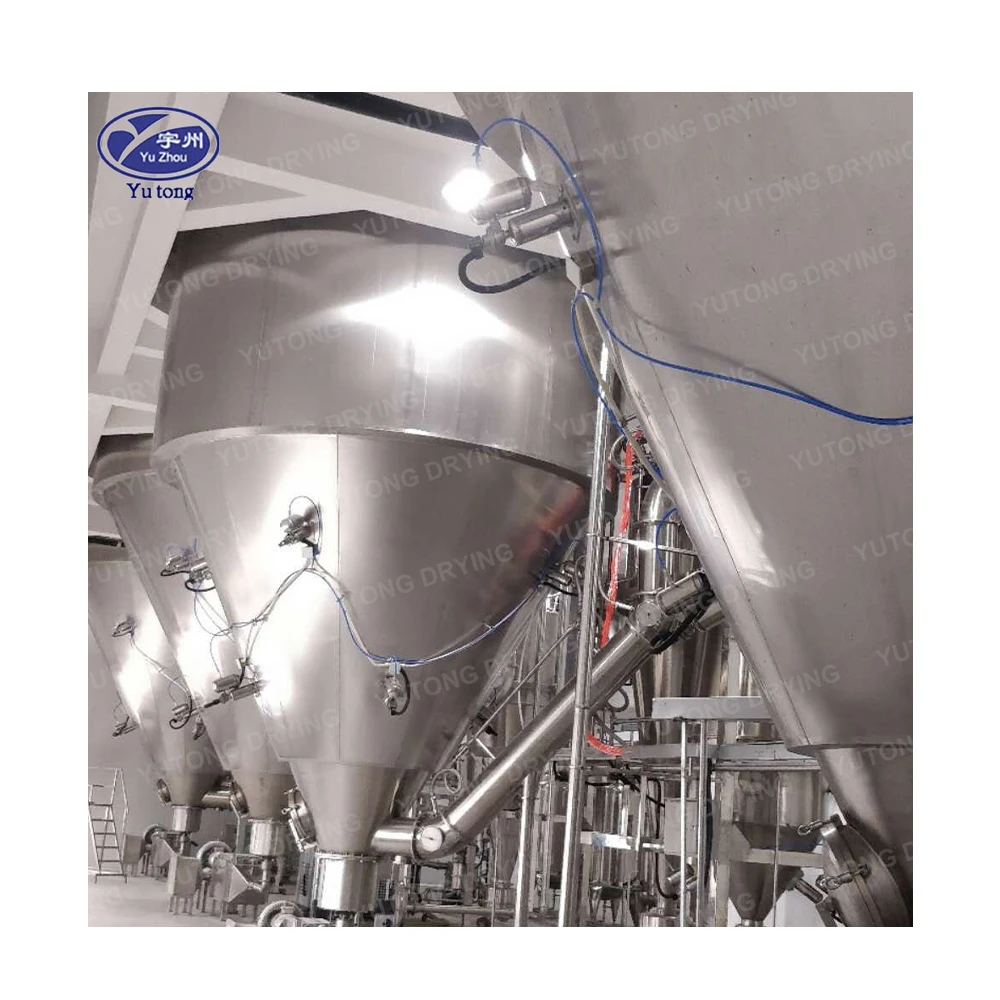
Table des matières
Détails du produit
In the world of industrial processing, finding efficient and effective methods to convert liquid substances into fine powder is crucial. One of the most advanced and popular technologies used today is the silica spray dryer. This technique is particularly beneficial in the silica industry for a variety of reasons. In this article, we will explore the advantages of using silica spray dryers and how they contribute to the production of high-quality silica powder. By understanding these benefits, businesses can optimize their processes, reduce costs, and improve product quality, ensuring they stay competitive in the market.
A silica spray dryer is a type of industrial equipment specifically designed for the process of converting liquid silica into a fine, dry powder. It utilizes the principle of atomization and hot air to achieve this transformation. The liquid silica is sprayed into a drying chamber where it is exposed to hot air, causing the moisture to evaporate and leaving behind a dry powder. This process is highly controlled, ensuring that the end product meets the stringent quality standards required for various industrial applications.
The design and functionality of silica spray dryers have evolved over the years to incorporate advanced features that enhance their efficiency and output. Modern spray dryers come equipped with sophisticated control systems that allow operators to precisely manage temperature, airflow, and drying time. Such advancements ensure that the drying process is not only effective but also adaptable to different types of silica and production requirements, making them a versatile tool in industrial settings.
The Process of Spray Drying Silica
Atomisation
The first step in using a spray dryer for silica is atomization. This involves transforming the liquid feed into small droplets. This is typically achieved using high-pressure nozzles or a rotary atomizer. The size of the droplets can be adjusted based on the desired characteristics of the final powder. Precise control over droplet size ensures that the drying process is consistent, resulting in a uniform particle size in the final product, which is crucial for its intended applications.
Atomization is not merely a mechanical process; it is a critical step that influences the efficiency of the entire drying operation. By optimizing the atomization process, manufacturers can enhance the quality of the powder and reduce energy consumption. Additionally, advancements in nozzle design and atomizer technology have allowed for greater flexibility in processing different viscosities and compositions of silica solutions, further expanding the applicability of spray drying in diverse industries.
Séchage
Once the silica liquid is atomized into fine droplets, it enters the drying chamber. Here, it encounters a stream of hot air. The hot air evaporates the moisture from the droplets, leaving behind fine silica powder. This process is rapid, minimizing heat exposure and preserving the quality of the silica. The speed of the drying process is critical as it prevents thermal degradation, ensuring that the structural and chemical properties of the silica remain intact.
The drying phase is where the efficiency of the spray dryer truly shines. By maintaining a controlled environment within the drying chamber, operators can achieve optimal drying conditions that maximize yield and minimize waste. The ability to fine-tune the drying parameters allows for the production of high-purity silica powder, which is essential for applications demanding precision and consistency. This adaptability makes spray drying a preferred method in industries where product quality cannot be compromised.
Collection
After drying, the fine silica powder is collected from the bottom of the spray dryer chamber. Advanced spray dryers have efficient systems to ensure maximum yield and minimal waste. Collection mechanisms are designed to handle the powder delicately to prevent any agglomeration or contamination. This step is crucial in maintaining the integrity and purity of the silica powder, ensuring it meets the required specifications for its intended use.
The collection process has also seen significant advancements, with modern spray dryers incorporating automated systems that enhance efficiency and reduce manual intervention. These systems can separate and collect different grades of silica powder, enabling manufacturers to cater to a wider range of market demands. The emphasis on maximizing yield while minimizing waste not only contributes to cost-effectiveness but also aligns with sustainable manufacturing practices, which are increasingly important in today’s industrial landscape.
Advantages of Spray Drying Technology in Silica Processing
Taille uniforme des particules
One of the primary advantages of using spray drying technology for silica is the ability to produce powders with a uniform particle size. This is crucial for many industrial applications where consistency is key. Uniform particle size ensures predictable behavior in subsequent processing and end-use applications, whether in paints, plastics, or pharmaceuticals. It reduces the need for additional processing steps, saving time and resources.
Uniformity in particle size also translates to improved product performance and quality. In industries where precision is paramount, such as electronics or pharmaceuticals, the ability to consistently produce silica with specific characteristics enhances the reliability and effectiveness of the final product. This consistency is a significant competitive advantage, allowing manufacturers to meet stringent industry standards and customer expectations.
Qualité des produits améliorée
Spray drying allows for precise control over the drying conditions, leading to higher product quality. The rapid drying process minimizes thermal degradation and ensures that the silica retains its original properties. This precision is particularly important in maintaining the chemical composition and functionality of the silica, which are critical for its performance in various applications.
Enhanced product quality also means that the silica powder produced is free from impurities and unwanted variations. This purity is essential in applications such as pharmaceuticals and electronics, where even minor deviations can impact performance and safety. By ensuring high-quality output, spray drying technology helps manufacturers build trust with their customers and establish a strong reputation in the marketplace.
Efficacité énergétique
Compared to other drying methods, spray drying is more energy-efficient. The process is designed to minimize energy consumption while maximizing output, making it a cost-effective solution for large-scale silica production. Energy efficiency is achieved through the optimization of airflow, temperature control, and drying time, all of which contribute to reducing operational costs.
The energy-efficient nature of spray drying not only benefits the bottom line but also aligns with environmental sustainability goals. By reducing energy consumption, manufacturers can lower their carbon footprint, contributing to a greener and more sustainable industrial practice. This focus on energy efficiency is increasingly important as industries strive to meet regulatory requirements and consumer expectations for environmentally responsible production.
Évolutivité
Spray dryers are highly scalable, making them suitable for both small-scale and large-scale operations. Whether you’re a small business or a large industrial plant, you can find a spray dryer that fits your production needs. This scalability is achieved through modular designs and customizable configurations that allow manufacturers to tailor the equipment to their specific requirements.
The scalability of spray drying technology also means that businesses can easily adapt to changing market demands. As production volumes increase, manufacturers can expand their capacity without significant overhauls or investments in new equipment. This flexibility is crucial for maintaining competitiveness and meeting the dynamic needs of the industry.
Versatilité
While this article focuses on silica, it’s important to note that spray dryers can be used for various materials. This versatility makes them a valuable asset in different sectors of the chemical and food industries. The ability to process a wide range of substances, from pharmaceuticals to food additives, enhances the utility of spray dryers and broadens their application scope.
The versatility of spray dryers also facilitates innovation and experimentation with new products and formulations. Manufacturers can explore new applications and markets without the need for extensive capital investment in specialized equipment. This adaptability fosters a culture of innovation and exploration, driving growth and advancement in diverse industrial sectors.
Applications of Silica Spray Drying
Paints and Coatings
Silica powder produced through spray drying is often used in the paints and coatings industry. Its uniform particle size and high purity make it an ideal additive for improving the durability and finish of paints. The fine silica particles enhance the mechanical properties of coatings, providing better resistance to wear and environmental degradation.
In addition to improving physical properties, silica in paints and coatings can also influence aesthetic qualities. It helps achieve smoother finishes and enhances the overall appearance of painted surfaces. By incorporating high-quality silica powder, manufacturers can deliver superior products that meet the demands of both commercial and consumer markets.
Rubber and Plastics
In the rubber and plastics industry, silica serves as a reinforcing filler. The fine powder produced by spray drying enhances the strength and longevity of rubber and plastic products. By improving the mechanical properties of these materials, silica contributes to the development of durable and high-performance products that can withstand demanding applications.
The use of spray-dried silica in rubber and plastics also offers benefits in terms of processing and cost-efficiency. The uniformity and purity of the powder reduce processing challenges and improve the consistency of the final product. This consistency is particularly important in applications like automotive components and consumer goods, where reliability and performance are critical.
Médicaments
The pharmaceutical industry uses silica for its anti-caking properties. Spray-dried silica ensures that powders remain free-flowing and easy to handle during manufacturing processes. This property is essential for maintaining the efficiency and accuracy of pharmaceutical production, where precise dosing and formulation are crucial.
In addition to its functional benefits, the use of silica in pharmaceuticals also supports product stability and shelf life. By preventing caking and aggregation, silica helps maintain the integrity of active ingredients, ensuring their efficacy over time. This reliability is vital for pharmaceutical companies looking to deliver safe and effective products to the market.
Industrie alimentaire
In the food industry, silica is used as an anti-caking agent in products like spices and powdered milk. The precise control of spray drying technology ensures that the silica retains its effectiveness without compromising safety. This application helps maintain the quality and usability of food products, preventing clumping and ensuring a pleasant consumer experience.
The use of silica in the food industry also aligns with regulatory and safety standards. By producing silica with high purity and consistency, manufacturers can ensure compliance with food safety regulations and meet the expectations of health-conscious consumers. This commitment to quality and safety is a key differentiator in a competitive marketplace.
Conclusion
Silica spray dryers offer numerous advantages in the production of fine powders. From their energy efficiency to their ability to produce uniform and high-quality powders, they are an essential component in silica processing. By understanding the benefits and applications of spray drying technology, businesses can make informed decisions to optimize their production processes and achieve superior results.
Incorporating the right silica spray dryer into your operations not only enhances product quality but also contributes to cost savings and sustainability. As industries continue to evolve, embracing advanced technologies like spray drying will be key to maintaining a competitive edge. By staying informed about the latest trends and innovations, businesses can ensure they are well-positioned to meet future challenges and opportunities in the industrial sector.
Caractéristiques
Aucun contenu correspondant à votre sélection n'a été trouvé.
Applications
Aucun contenu correspondant à votre sélection n'a été trouvé.

